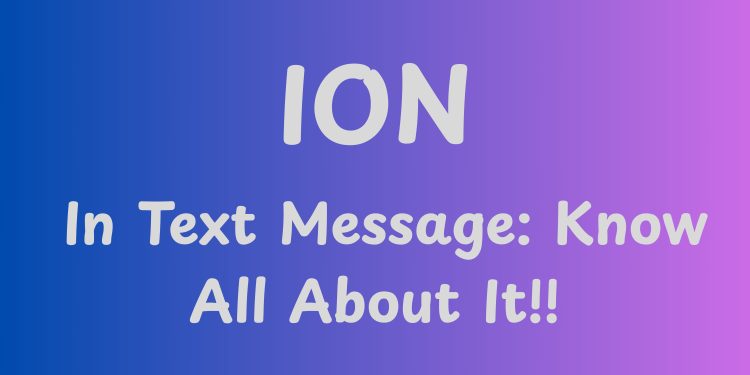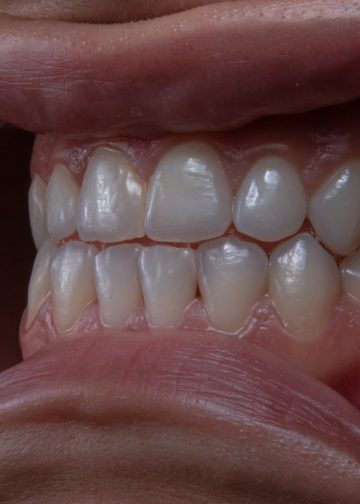Key Takeaways
- ION” means “In Other News” and is used to change the subject in casual conversations.
- It’s popular among Gen Z and Millennials, especially in text messages, tweets, and memes.
- The term should not be confused with the scientific meaning of ion, which refers to a charged atom or molecule.
- “ION” helps with tone shifting, making chats feel lighter and more dynamic.
- It’s not suitable for formal writing or professional communication.
Another day, another abbreviation!! But trust us, ion is like none other. It has its uses, importance that we will tell you all about!! So read on and know all about the use of ion in text message
What Does “ION” Mean In A Text Message?
So, ION stands for “In Other News,” and it’s a handy little phrase you’ll often hear when someone wants to switch topics in a conversation. It’s especially popular in casual chats or when someone’s trying to add a bit of humor. Think of it as a cue that the speaker is about to dive into a new topic that’s usually not related to what you were just talking about.
Example:
- Friend 1: “Ugh, I failed my math test today”
- Friend 2: “Dang, that sucks. I’m sorry. ION, I finally watched that movie you told me about!”
Why Do People Use “ION”?
Texting and online chatting thrive on being short and smooth. People want to express themselves without having to type a lot. That’s where “ION” comes in handy because:
- It saves time – Just three quick letters instead of writing out “In other news.”
- It helps manage tone – It gives a playful nudge that the topic is changing.
- It’s culturally understood – Among Gen Z and Millennials, it’s become a familiar and widely used term.
Variations And Misinterpretations
So “ION” is actually a legitimate English word (and is referred to a charged atom or molecule), so don’t mix up its scientific meaning with its casual texting slang.
Scientific Definition
In chemistry or physics, an ion is defined as an atom or molecule that carries a net electric charge.
Contextual Clues
If you’re reading a message from a friend about their weekend plans, you can bet that “ION” means “In Other News” rather than the scientific term.
Where You’ll Commonly See “ION” Used?
Text Messages And Chats
These are typically used for one-on-one chats or group conversations.
They’re perfect for casual discussions, especially when you want to switch between different topics.
Social Media Posts
Platforms like Twitter/X, Instagram, TikTok, and Facebook often use “ION” to share updates or shift between subjects.
Here’s the text to analyze: Example:
- “ION, I really need to stop ordering food at midnight”
Memes And Trendy Content
“ION” is frequently seen in memes to introduce a fresh idea or an unexpected twist.
How To Use “ION” Naturally In Conversation
Scenario 1: Changing topics casually
“I can’t believe it’s Monday again. By the way, I just scored my concert tickets!”
Scenario 2: Pivoting after sharing some drama
“So yeah, they broke up again. Speaking of which, have you checked out the new Marvel trailer?”
Scenario 3: Social media update
“Hey everyone, I finally tackled my room after three weeks! It feels like a major win 😂”
Scenario 4: Making a joke
“My life is a bit of a mess right now. But hey, pizza’s on sale!”
Similar Slang Terms You Will See
- BTW – This stands for “By the Way.” It’s often used to add extra information or casually bring something up.
- IDK – Short for “I Don’t Know.” People use this when they’re unsure or don’t have an answer.
- TBH – Meaning “To Be Honest.” This one is usually used before someone shares a candid or personal opinion.
- IMO – Stands for “In My Opinion.” It's often used to soften a viewpoint or offer a subjective take.
- SMH – This means “Shaking My Head.” It’s used to show disbelief, disappointment, or frustration.
What Is The Impact of Slang Like “ION”?
Efficiency Is Key
These days, people are all about getting their message across in as few words as possible. It’s about making your point quickly and effectively.
Tone Management
Words like “ION” helpz shift the mood in online conversations, especially when you’re moving from a serious topic to something more lighthearted.
Identity And Belonging
Using trendy slang can create a sense of community, particularly among younger folks who are all about social media.
Digital Creativity
People love to take acronyms like “ION” and spin them into new meanings across various platforms, from memes to tweets and viral challenges.
Common Misuses Or Confusion
- When it comes to formal writing, be clear of using “ION” in emails to teachers, bosses, or academic papers. It's just too casual for those settings.
- Now, about the misunderstanding of “ION” – some folks might read it as “I on” and mistakenly think it means “I don’t.” However, that's not the case in most written contexts.
- And remember, “ION” should start off a new idea rather than being tossed in randomly mid-thought.
Final Tips For Using “ION” Confidently
- Keep it casual and save it for informal situations.
- Use it to switch topics or share some light-hearted news.
- Just be careful not to confuse it with its scientific meaning when you're in an academic environment.
- And remember, less is more—it's way funnier and more impactful when you don’t overdo it!
Conclusion
“ION” might just look like another acronym, but it actually serves a subtle yet significant purpose in our online chats. It helps people glide through conversations effortlessly, keeps the mood light, and allows for easy connections.





















